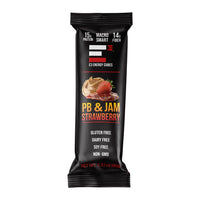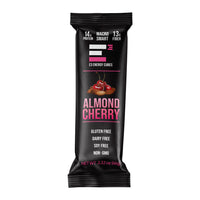Fueling Your Mind Through a Healthy Gut: Unraveling the Connection Between Diet and Mental Well-Being

Emerging research in nutritional psychiatry has firmly established that the food we eat plays a pivotal role in both our mental and physical health. At the heart of this connection lies the gut-brain axis, a dynamic, two-way communication network where our digestive system and brain continuously interact. This interplay not only influences mood and behavior but also underpins critical aspects of memory and cognitive function.
The Gut–Brain Axis: A Vital Communication Network
The gut-brain axis comprises several communication pathways, notably the vagus nerve, as well as immune, neuroendocrine, and circulatory systems. Beneficial bacteria that line the intestinal walls perform a dual role: they help in nutrient absorption while also shielding us from harmful invaders. Conversely, when these friendly microbes are overwhelmed the intestinal lining can become compromised, resulting in a state known as dysbiosis. This breakdown triggers inflammation and permits toxins to enter the bloodstream, potentially affecting brain function and contributing to conditions like depression, cognitive decline, and even neurodegenerative disorders.
Mood, Memory, and More: How Gut Health Impacts the Brain
One of the most striking aspects of the gut–brain relationship is its role in regulating key neurotransmitters. For example, nearly 95% of the body’s serotonin, a chemical crucial for mood regulation, is produced within the gut. In this way, the balance of gut bacteria can have a profound influence on stress resilience, sleep quality, and overall mental well-being. Studies have linked an imbalanced gut microbiome not only to mood disorders such as anxiety and depression but also to challenges in learning, memory, and attention.
The Role of Diet and Lifestyle in Shaping Gut Health
What you eat can either nurture or disrupt your gut microbiome. Diets rich in plant-based foods, like the Mediterranean diet, provide a bounty of polyphenols, healthy fats, and dietary fibers. These nutrients work synergistically to reduce inflammation and enhance the diversity of gut bacteria. In contrast, ultra-processed foods and refined sugars can upset this delicate balance, paving the way for an impaired gut–brain connection.
Lifestyle factors such as high-quality sleep, regular exercise, and effective stress management also contribute significantly. Recent studies suggest that positive dietary and lifestyle adjustments can yield noticeable improvements in gut balance and brain function, sometimes within just 24 hours.

Practical Tips to Support Your Gut and Brain
Improving gut health doesn’t require an overhauled lifestyle overnight. Here are some practical approaches:
- Embrace Whole Foods: Focus on incorporating a variety of whole, minimally processed foods. Think colorful fruits, vegetables, lean proteins, and whole grains. All of which provide essential vitamins and minerals that support both gut and brain functions.
- Prioritize Fermented Foods: Foods like yogurt, kefir, sauerkraut, and kimchi naturally contain probiotics that help maintain a balanced gut microbiome.
- Consider Prebiotics and Probiotics: Dietary supplements or naturally occurring prebiotic fibers (found in foods like garlic, onions, and bananas) can feed beneficial bacteria, while probiotic-rich foods introduce more of these friendly organisms into your system.
- Maintain a Routine: Regular exercise and consistent sleep patterns not only boost overall well-being but also help regulate the body's circadian system, which is closely tied to gut microbial activity.
- Smart Snacking Options: While there are many ways to support your nutritional goals, incorporating nutrient-dense snacks can be a convenient strategy. For busy lifestyles, options such as high-protein, minimally processed bars are one method among many to help fuel both the gut and mind without relying solely on processed alternatives.
A Holistic Path to Better Mental Health
Understanding the intricate relationship between gut health and mental well-being opens up new avenues for a holistic approach to health. By making mindful choices—opting for nutrient-rich, whole foods and healthy lifestyle practices—you give your gut the support it needs to function optimally. In doing so, you nurture not only your digestive system but also your cognitive and emotional resilience.
The connection is clear: a balanced diet and mindful habits shape a vibrant gut environment, which in turn can lead to better mood regulation, enhanced memory, and overall improved brain function. What small dietary change could you make today that might positively impact your mental and physical health?
For additional information on claims in this post check out these articles:







Leave a comment